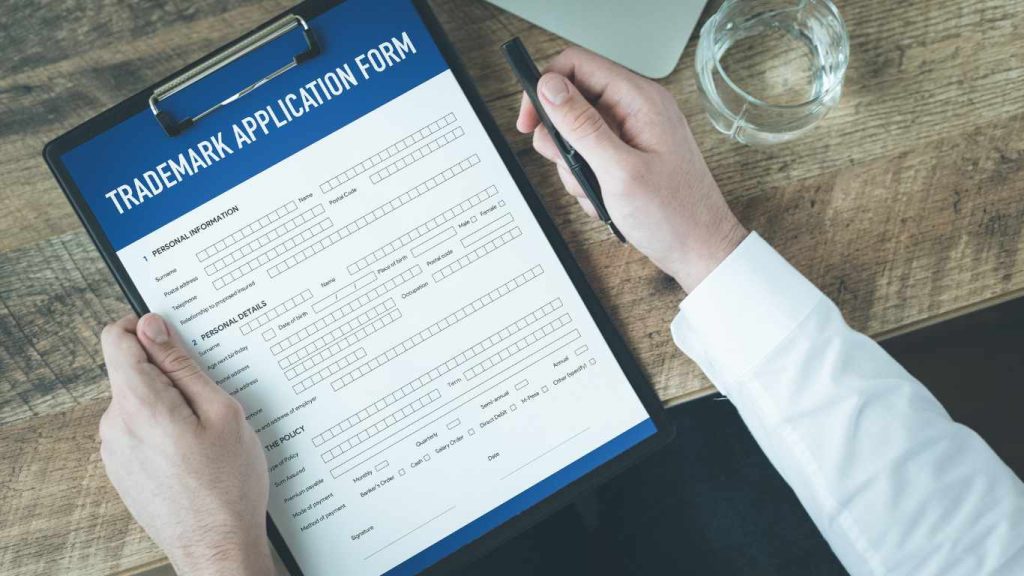In today’s highly competitive startup ecosystem, a company’s ideas and innovations give them a leading edge. Without adequate protection, these intangible assets are vulnerable to copying or exploitation by rivals.
IP law enables startups to secure exclusive rights over their inventions, brand identities, content, and other intellectual work products. Developing IP rights early is essential for attracting investors, forming strategic partnerships, and ultimately dominating your market.
This article explores the intersection of IP and startups. It covers the core types of IP, strategies for protection, and common pitfalls to avoid. Any entrepreneur who hopes to transform visionary thinking into real-world success needs to make IP a priority.
With proper legal protections in place, you can confidently share your ideas, commercialize products and services, and continue driving innovation without fear of theft. Let’s examine how applying IP law insights can help safeguard your startup’s competitive edge.
Understanding Intellectual Property in the Startup Context
The four main types of IP relevant to startups are patents, trademarks, copyrights, and trade secrets. Each protects different aspects of intellectual work and inventions.
Patents grant exclusivity over functional inventions like technologies, processes, or product designs. Detailing your invention in a patent application allows your startup to restrict others from using or profiting from your idea for a set period. This process is often a topic of discussion in IP law forums, where startups can gain insights into effective patent strategies.
Trademarks protect brand identities and logos. Registering your startup’s distinctive name, slogan, or visual brand elements ensures control over how these marks are used in commerce, a subject frequently explored in IP law forums for best practices.
Copyrights safeguard original creative works such as software code, digital content, website design and artistic designs, preventing unauthorized reproduction, distribution, or derivative uses.
Trade secrets encompass confidential business information that offers an economic edge, like proprietary algorithms, datasets, manufacturing techniques, or consumer insights.
Understanding how other startups utilize different forms of IP, often shared in the IP law forum, can aid in developing a balanced IP strategy. For example, consumer tech companies typically focus on patents and trademarks, while software startups may prioritize copyrights and trade secrets.
The Importance of Protecting IP Early
New ventures often put off formalizing their IP protections, but this exposes them to significant risks. Failing to promptly secure rights over your IP makes it easier for unscrupulous competitors to exploit your ideas. Early registration establishes priority over similar IP claims and makes infringement disputes easier to win.
Many startups regret not locking down IP rights sooner. For example, social media pioneer ConnectU sued Facebook in 2004 alleging Mark Zuckerberg stole their ideas while working with them as a student.
ConnectU provided emails and witnesses confirming Zuckerberg had improperly taken source code and the idea for his competing social network. However, because ConnectU had not yet filed any patent or copyright registrations, the claims were weak and the case settled for a relatively modest amount.
Navigating the Patent Process

Of the various IP forms, patents provide the strongest protections and are thus highly valuable to startups developing new technologies. However, the patent process is complex. Here is a high-level overview of what’s involved:
- Conducting prior art searches to establish your invention’s novelty. Existing patents or public disclosures can invalidate a patent for lack of originality.
- Drafting and filing a patent application with the United States Patent and Trademark Office (USPTO), detailing how your invention works.
- Responding to any rejections by the patent examiner and refining your application through various office actions.
- Being granted a patent, which enables you to sue infringers in federal court.
- Paying periodic maintenance fees to keep your patent rights enforceable.
Startups should involve a registered patent attorney early on. The legal consultant can perform prior art assessments, translate your discovery into patent-eligible claims, and navigate proceedings with the USPTO. Patents take 2-4 years to issue but pending applications still deter infringement.
Trademarking Your Startup’s Brand

Distinct branding is crucial for startups seeking to stand out. Registering trademarks protects your company and product names, logos, taglines, and other brand elements from unfair usage.
The U.S. Patent and Trademark Office oversees trademark registration. To qualify, your marks must be distinctive enough to identify your goods and services in the marketplace. Marks fall into one of five categories based on inherent distinctiveness and acquired secondary meaning.
You can file your own trademark application, but hiring an attorney maximizes your odds of approval. Once registered, you must actively police your marks or risk losing rights. Consistently using TM, SM or ® symbols also deters infringement.
Ongoing promotion of your brand strengthens trademarks over time. For example, Twitter’s (now X) ubiquitous bird logo and hashtag symbol are now globally recognized. The company can prevent others from adopting confusingly similar branding due to diligent trademark management.
Copyrights and Your Startup
From blogs to apps and website design, startups excel at creating original digital content and software. Copyright law provides critical protections by granting authors exclusive rights over reproduction, distribution, public display, and creation of derivative works based on their creations.
Copyright attaches automatically when you put your work into a fixed, tangible form like source code, marketing copy, or industrial design blueprints. However, formally registering copyrights enables you to sue infringers and claim higher damages. It also establishes your ownership if disputes arise.
Startups should copyright all proprietary code, content, and other creative output. However, limitations like fair use do allow certain non-commercial uses of excerpts without permission. Software startups also leverage open-source copyright licenses to share access to their code while requiring improvements to be shared back.
Trade Secrets: Protecting Confidential Information

Some of a startup’s most valuable IP does not qualify for patents or other protections. Customer lists, private technical data, unfinished R&D, and other confidential business information can be shielded as trade secrets.
Qualifying information must give your company economic advantages over competitors lacking the secret. Reasonable measures like encryption and NDAs must be employed to maintain secrecy. Unlike other IP forms, trade secret rights are not registration-based and can theoretically last indefinitely.
However, if trade secrets become public knowledge, those rights terminate. Startups must vigilantly limit access and remind employees, vendors, and partners of confidentiality obligations. If trade secrets are ever compromised, you can sue for monetary damages.
Developing an Intellectual Property (IP) Strategy for Your Startup
Crafting an IP management strategy requires researching what protections apply to your specific assets. Analyze which IP building blocks are most essential to business success. Plot out an application timeline and budget based on your near-term innovation roadmap.
Align your IP portfolio with strategic goals. For instance, early-stage tech companies strive to quickly build robust patent thickets. E-commerce players focus more on trademarks and copyrights. Every decision should balance protection value against costs.
Work closely with Intellectual Property Attorneys to create strong applications, respond to office actions, and monitor your markets for infringement. Though legal expertise is expensive, it’s a prudent investment.
IP Licensing and Monetization

In addition to protecting your ideas, intellectual property can also generate revenue. Startups with significant patent portfolios have options to license access to their technologies or sell the IP rights outright.
For example, audio tech startup Alarm.com filed its foundational home security patents in 2001. As the IoT market grew, the company capitalized by licensing its broad IP to major players like Vivint, generating over $140 million by 2017.
Research your industry landscape for competitive advantages your IP could confer. Align valuations with development costs and projected licensee sales. Understand tax implications of sale versus licensing. For some startups, IP becomes their most profitable activity.
Avoiding Common IP Pitfalls

Despite its importance, startups often make avoidable IP mistakes. Failing to do clearance searches can lead to accidental infringement of others’ rights. Not consulting attorneys risk flawed or narrow applications. Trying to save money by having non-lawyers/legal consultants write patents or respond to rejections typically backfires.
Don’t assume you already own an employee work product. Using open-source code without understanding licensing nuances can create IP headaches. Disclosing inventions publicly before filing patent applications forfeits rights.
Adequate investment into IP is non-negotiable. Also develop formal IP assignment, non-disclosure, and invention assignment agreements. Educate your team on all policies and confidentiality practices. Institute access controls and monitoring procedures.
With the right IP knowledge and professional support, your startup can avoid pitfalls and derive immense value from intangible creations.
Conclusion
Intellectual property is a key asset for startups aiming to dominate markets. It provides control and maximizes value from their core innovations. This article highlighted the importance of patents, trademarks, copyrights, and trade secrets in safeguarding a startup’s ideas and brand.
Emphasizing early IP protection, revenue generation through IP, and avoiding legal pitfalls is crucial. Startups must balance priorities, but investing in IP protection is vital for long-term success.
With solid IP rights, startups can scale confidently, protecting their unique ideas and creativity, thereby bolstering their competitive edge and paving the way toward industry leadership.

